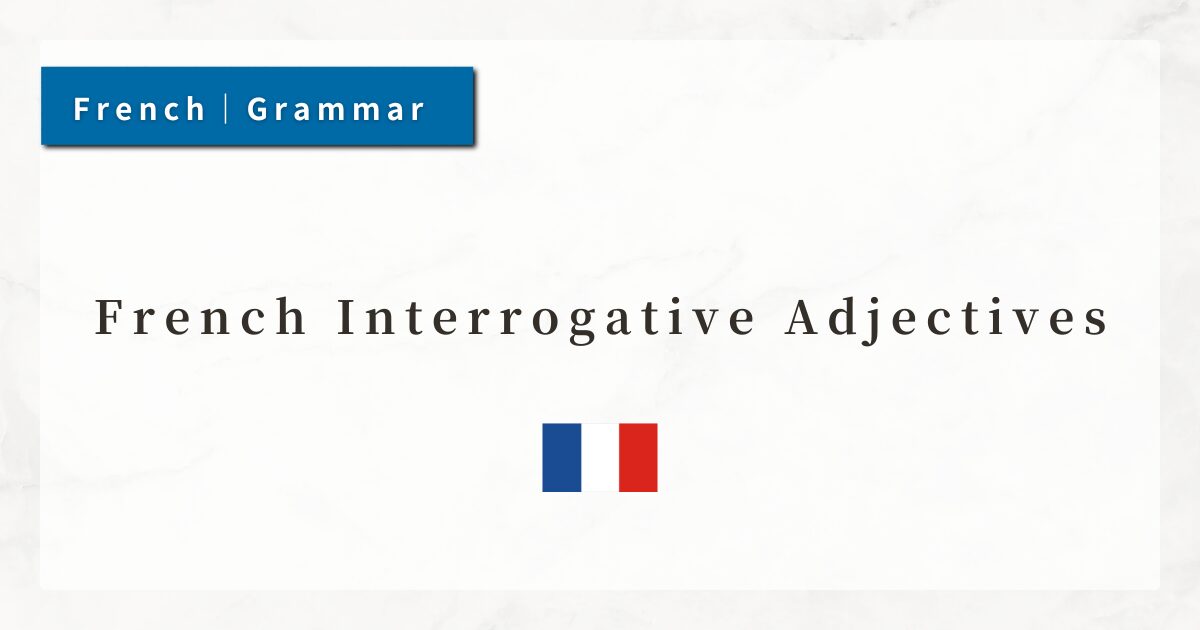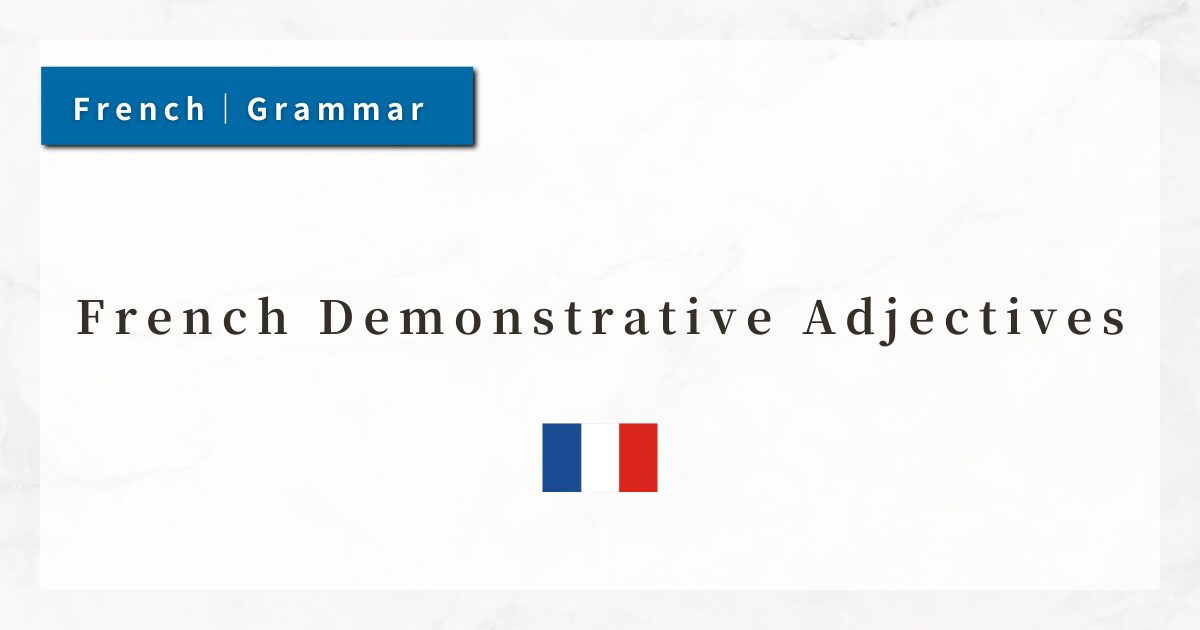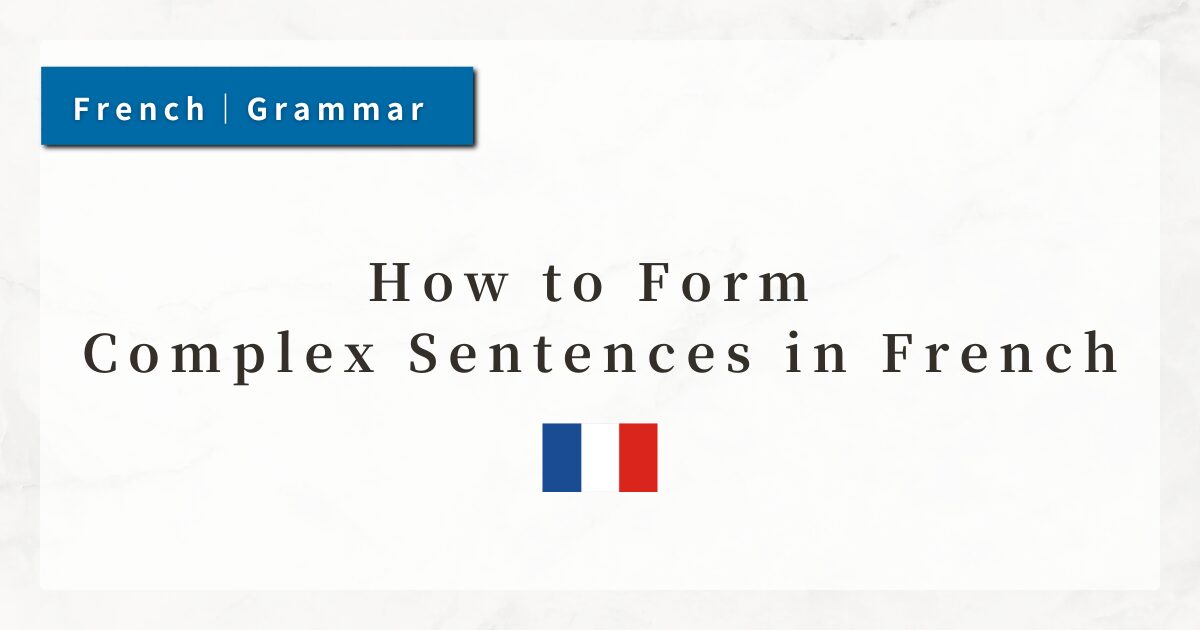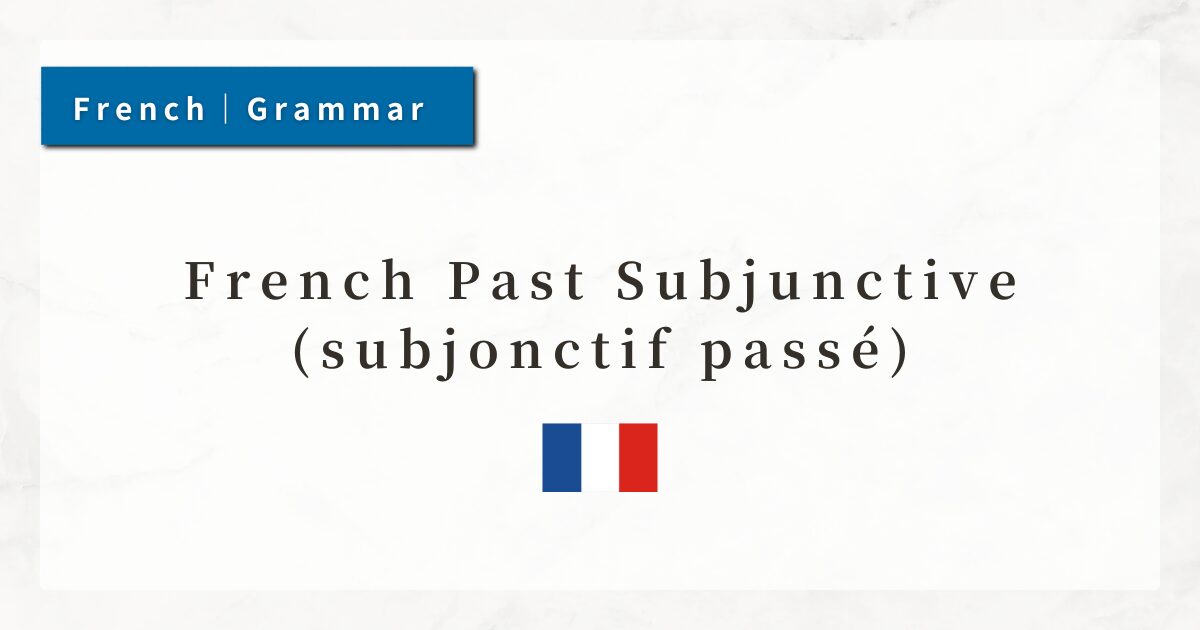#48 French Interrogative Adjectives | Types, Usage, and Conjugation Guide

In French, when asking questions such as “Which book?”, “What color?”, or “Which person?”, interrogative adjectives are used.
Interrogative adjectives always accompany a noun and are frequently used when requesting information.
In this lesson, I will explain the forms, usage, and rules of agreement (gender and number) for French interrogative adjectives.
1. Basics of Interrogative Adjectives
An interrogative adjective is placed before a noun and expresses questions such as “which ~?” or “what ~?”. They correspond to which or what in English.
French interrogative adjectives have the following four forms:
| Form | Gender / Number | Example of Use |
|---|---|---|
| quel | masculine singular | Quel jour est-ce ? (What day is it?) |
| quelle | feminine singular | Quelle couleur préfères-tu ? (Which color do you prefer?) |
| quels | masculine plural | Quels films as-tu vus ? (Which movies did you watch?) |
| quelles | feminine plural | Quelles langues parles-tu ? (Which languages do you speak?) |
The key point is that interrogative adjectives must agree in gender and number with the noun they modify.
As adjectives, they always function in relation to the noun.
2. Choosing the Correct Form According to Gender and Number
Interrogative adjectives are never used alone. They always appear in the structure: “interrogative adjective + noun.”
- Quel livre lis-tu ?
(Which book are you reading?) - Quelle robe choisis-tu ?
(Which dress are you choosing?) - Quels livres aimes-tu ?
(Which books do you like?) - Quelles chansons écoutes-tu ?
(Which songs are you listening to?)
3. Sentence Patterns with Interrogative Adjectives
Although the basic structure is always “interrogative adjective + noun,” there are several common patterns in actual sentences:
3-1. Inverted Questions
- Quel film regardes-tu ?
(Which movie are you watching?)
Here, the verb and subject are inverted (regardes-tu).
3-2. Questions with est-ce que
- Quelle couleur est-ce que tu préfères ?
(Which color do you prefer?)
After the interrogative adjective and noun, the structure continues with “est-ce que + subject + verb.”
3-3. Fixed Expressions with être
- Quelle heure est-il ?
(What time is it?)
This is a fixed and very common expression in daily conversation.
4. Summary
- Interrogative adjectives are used to ask questions such as “which ~?” or “what ~?” and must always accompany a noun.
- Their form changes according to the gender (masculine/feminine) and number (singular/plural) of the noun.
- Common sentence structures include inversion, “est-ce que” questions, and fixed expressions with être.
- In every case, the core structure is “interrogative adjective + noun.”




